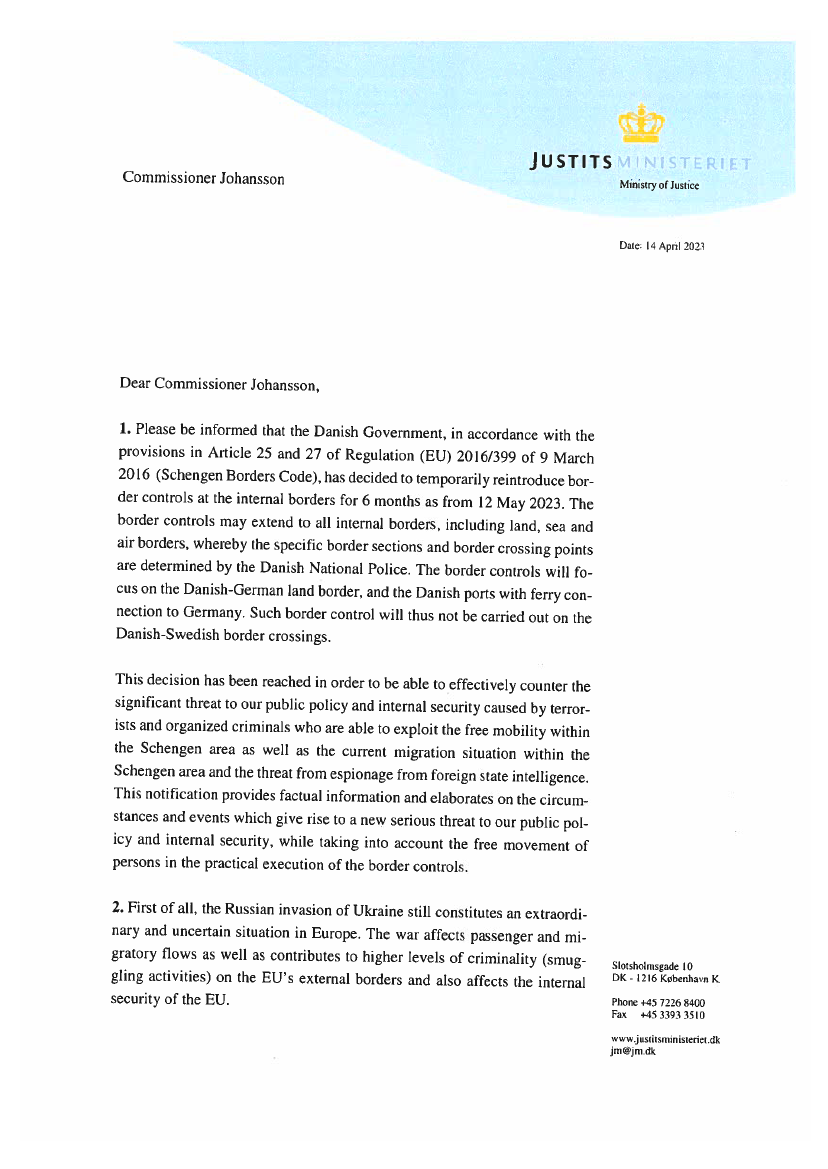
Dear Commissioner Johansson,
1. Please be informed that the Danish Government, in accordance with the
provisions in Article 25 and 27 of Regulation (EU) 2016/399 of 9 March
2016 (Schengen Borders Code), has decided to temporarily reintroduce bor-
der controls at the internal borders for 6 month as from 12 May 2023. The
border controls may extend to all internal border , including land, sea and
air borders, whereby the specific border section and border crossing points
are determined by the Danish National Police. The border controls will fo-
cus on the Danish-German land border, and the Danish ports with ferry con-
nection to Germany. Such border control will thus not be carried out on the
Danish-Swedish border crossings.
This decision has been reached in order to be able to effectively counter the
significant threat to our public policy and internal security caused by terror-
ists and organized criminals who are able to exploit the free mobility within
the Schengen area as well as the current migration situation within the
Schengen area and the threat from espionage from foreign tate intelligence.
This notification provides factual information and elaborate on the circum
stances and events which give rise to a new serious threat to our public pol-
icy and internal security, while taking into account the free movement of
persons in the practical execution of the border control .
2. First of all, the Russian invasion of Ukraine still con titutes an extraordi-
nary and uncertain situation in Europe. The war affect pa enger and mi-
gratory flows as well as contributes to higher levels of criminality (smug-
gling activities) on the EU’s external borders and also affects the internal
security of the EU.
Slotsholmsgade 10
DK - 1216 København K
Phone +45 7226 8400
Fax +45 3393 3510
www.justitsministeriet.dk
JUSTITS
Munstry of Justice
Commissioner Johansson
Date 14 April 2023
Europaudvalget 2022-23 (2. samling)
EUU Alm.del - Bilag 387
Offentligt